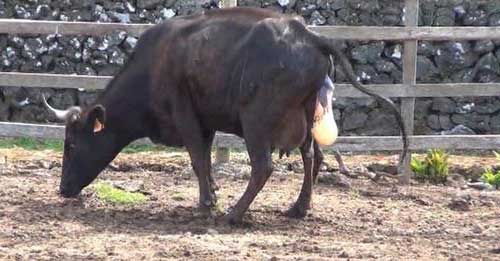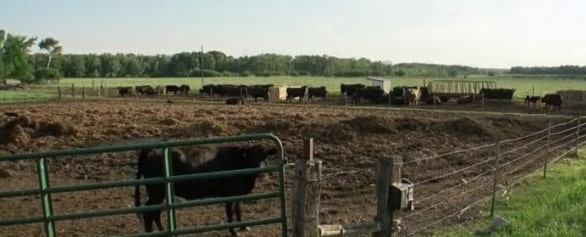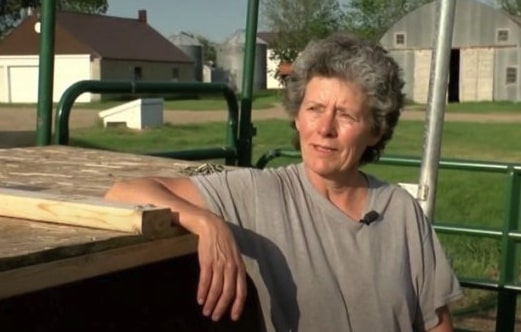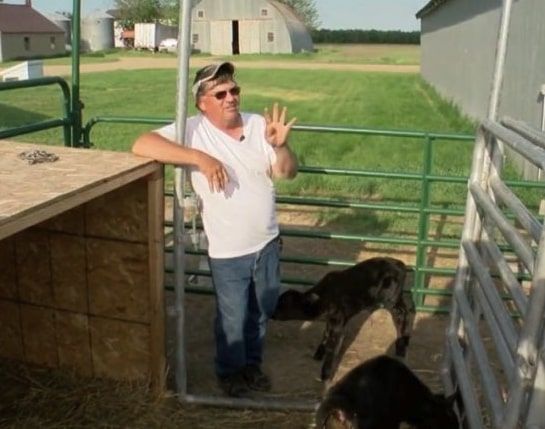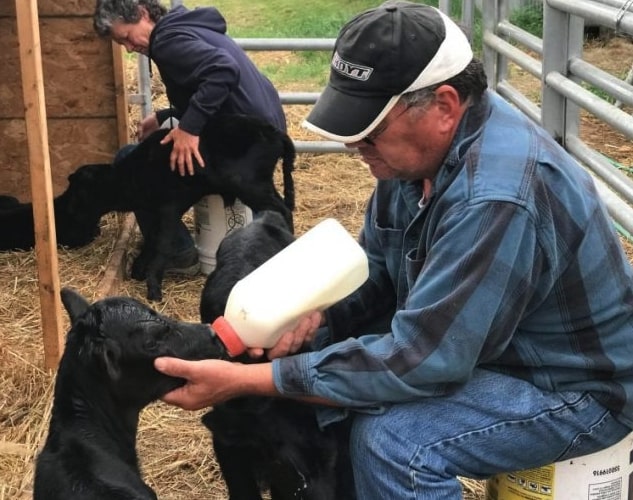When a cow went into labor on Chuck and Deb Beldo’s farm in Sebeka, Minnesota, they saw a very unique occurrence. It is so uncommon that it occurs just once per 11.2 million births. She has always been around cows, and has never seen anything like that, Deb added.
It all started when one of the Beldos’ cows got pregnant. Her last two pregnancies had resulted in single, healthy calves, therefore, this was her third pregnancy. Apparently, everything seemed to be normal throughout the mother cow’s pregnancy and delivery.
Chuck and Deb quickly realized, though, that the mother cow was possibly carrying more than one calf. They knew there was a potential that she’d have twins, yet nothing could have prepared them for the reality.
Chuck saw Deb putting up her fingers for each newborn baby she witnessed while the cow was in labor. The Beldos’ cow had given birth to quadruplets, so they raised one, two, three, and four fingers to indicate a rare miracle on their farm.
Mum had noticed her size but had given it little thought. Jamie Belz, the Beldos’ daughter, stated that twins are quite frequent. They actually had twins earlier this year, but they arrived during the extreme cold weather they had in April and didn’t survive it.
Chuck and Deb realized they had their work cut out for them as reality kicked in. It was one thing for their cow to give birth to several calves, but keeping all of those youngsters alive would be an altogether different challenge.
The chances of a cow conceiving quadruplet calves, according to the textbook “Veterinary Obstetrics and Genital Diseases,” are one in 700,000. The chances of all four being born alive and surviving are 1 in 11.2 million. He believes they’re going to make it now. He wouldn’t have bet a dollar on it a week ago.
The Beldos began bottle-feeding the calves—two females and two males—virtually continuously. Chuck Beldo joked that they need volunteers for the midnight feeding. They were born prematurely and had to be taken from their mother due to their inability to suckle. A typical calf weighs 50 to 70 pounds, according to Chuck. The quad calves weighed barely 20 to 25 pounds apiece.
At first, it seemed like not all of the calves would live. Yet, as time went on, they got stronger and healthier. Chuck and Deb are now confident that they will be alright. The Beldos were able to get colostrum, an after-birth mother’s milk product, from their dairy cow neighbors, which was critical to the calves’ wellbeing. Deb described it as a vital part of their existence.
While the Beldos are simply ordinary ranchers from the Midwest, their tale has gone viral, with social media users posting the incredible adventure and responding to express their solidarity. To say the least, it has been a fantastic —and taxing—experience for the couple.


